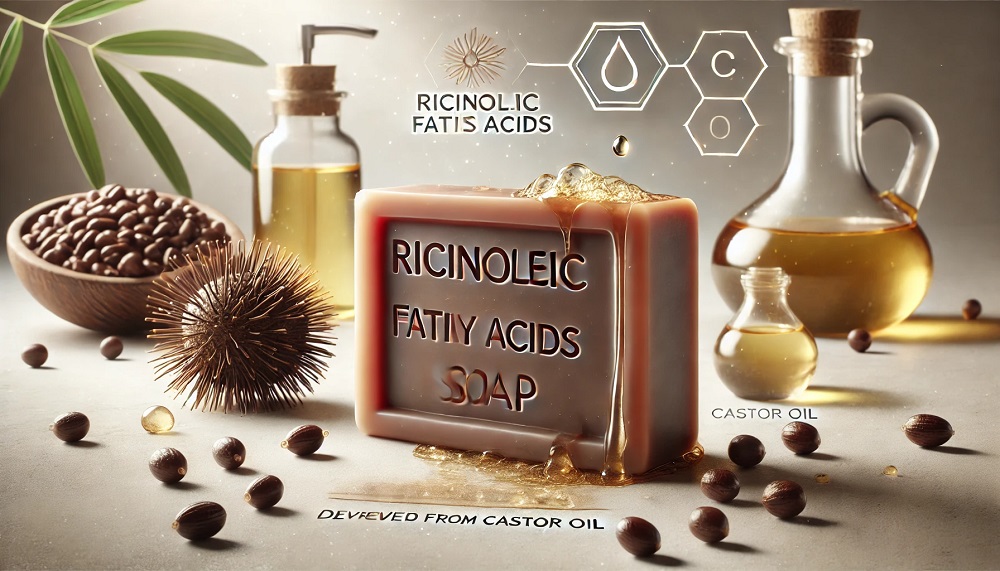Ricinoleic Fatty Acids in Soap: A Moisturizing and Skin-Soothing Ingredient

Ricinoleic Fatty Acids in Soap: In the world of soap-making, different fatty acids play vital roles in determining the quality and effectiveness of the soap. One of the most essential fatty acids used in soap formulation is Ricinoleic Fatty Acid. This fatty acid is known for its ability to retain skin moisture, leaving the skin soft and smooth. Primarily sourced from castor oil, ricinoleic acid also provides skin protection and helps in reducing inflammation. In this blog, we will discuss the benefits, sources, and importance of Ricinoleic Fatty Acid in soap.
বাংলা পোস্ট
What is Ricinoleic Fatty Acid?
Ricinoleic Fatty Acid is an unsaturated fatty acid primarily derived from castor oil. It is well-known for its ability to retain moisture in the skin and improve the soap’s smoothness and lathering ability. In addition to its moisturizing properties, ricinoleic acid is also anti-inflammatory, making it ideal for soothing irritated or sensitive skin.
Why is Ricinoleic Fatty Acid Important?
Ricinoleic Fatty Acid is crucial for soap formulations that aim to provide hydration and skin protection. Below are some key benefits of using ricinoleic acid in soap:
- Moisture Retention:
- Ricinoleic Fatty Acid helps lock in the skin’s natural moisture, preventing it from drying out and keeping the skin soft.
- Reduces Inflammation:
- It has anti-inflammatory properties, making it an excellent choice for those with sensitive or irritated skin.
- Boosts Lather Production:
- Ricinoleic acid enhances the soap’s ability to produce a rich lather, which helps in effectively removing dirt and impurities from the skin.
- Improves Skin Softness and Smoothness:
- This fatty acid makes the skin feel soft and smooth by maintaining its natural protective barrier.
Sources of Ricinoleic Fatty Acid
Ricinoleic Fatty Acid is primarily obtained from castor oil, which contains around 85-90% of this beneficial fatty acid. While castor oil is the most common source, it can also be found in small amounts in other vegetable oils.
- Castor Oil:
- Castor oil is the richest source of ricinoleic acid, known for its ability to deeply moisturize the skin and improve the soap’s smoothness.
How to Choose Soap with Ricinoleic Fatty Acid?
If you’re looking for a soap that helps prevent dryness and maintains skin moisture, soaps rich in Ricinoleic Fatty Acid are an excellent choice. These soaps are particularly beneficial for those with dry or sensitive skin, as they help keep the skin soft, hydrated, and irritation-free.
Conclusion
Ricinoleic Fatty Acid is an essential component in soap-making, enhancing the soap’s smoothness and improving its ability to retain moisture. Soaps enriched with this fatty acid help keep the skin hydrated, soft, and irritation-free. When choosing soap, look for products that contain Ricinoleic Fatty Acid to ensure your skin stays moisturized and smooth.

2 thoughts on “Ricinoleic Fatty Acids in Soap: A Moisturizing and Skin-Soothing Ingredient”